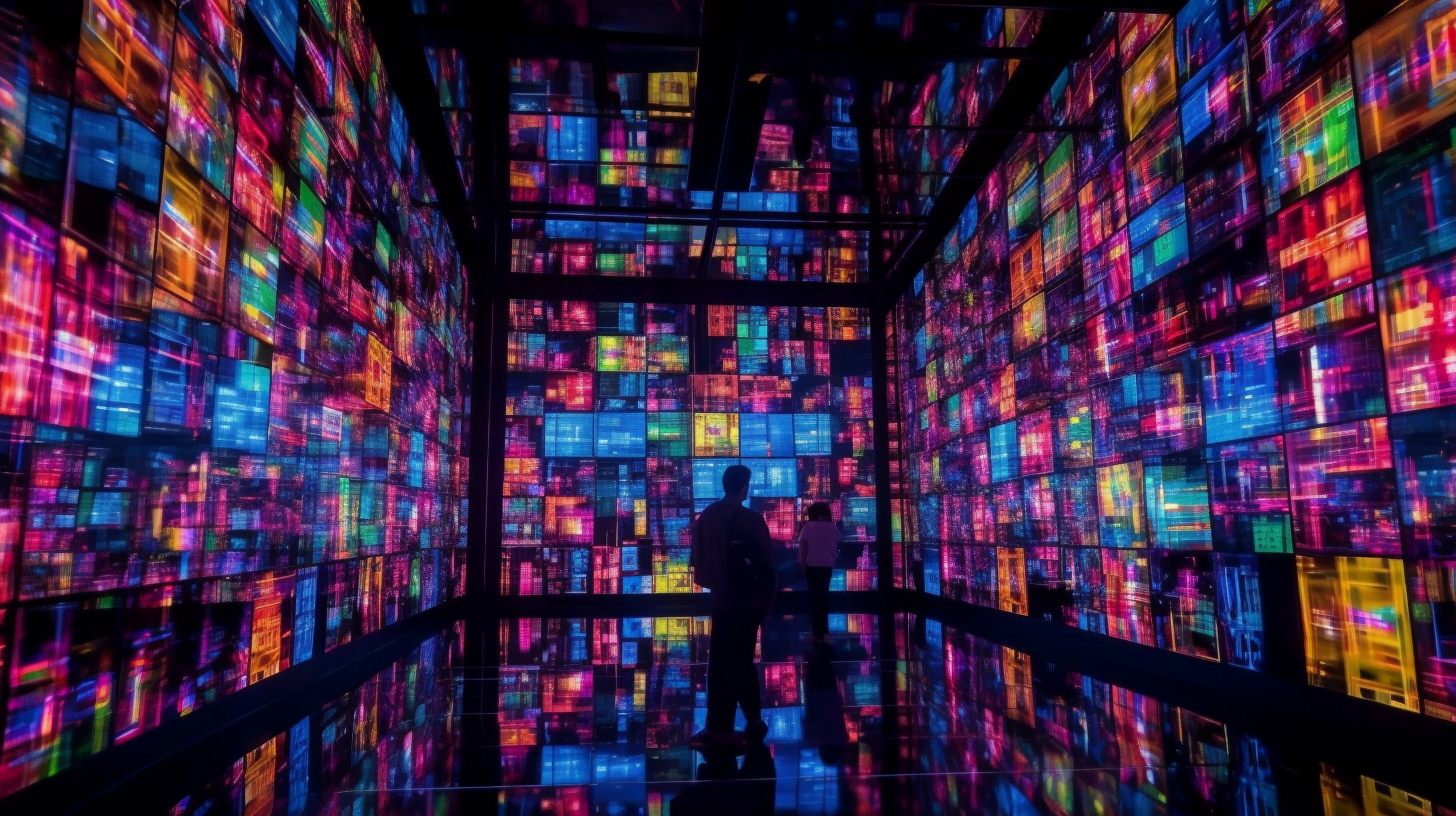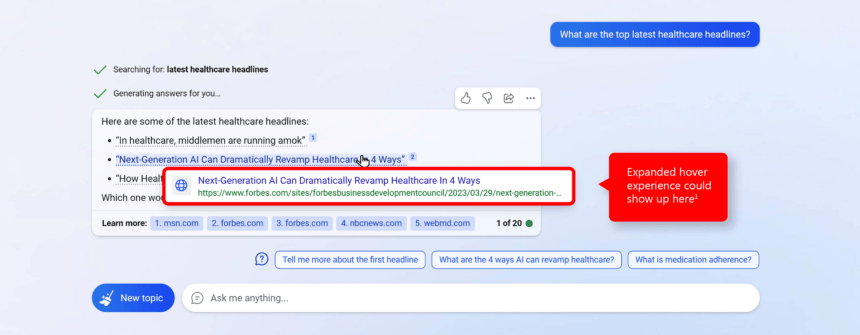Microsoft wants publishers to be part of its chatbot success story

When chatbots answer questions directly, they replace clicking on answers. This shifts the content ecosystem in favor of chatbot providers.
Microsoft is still a dwarf in the search engine market with Bing, but with wild Sydney and the new chatbot offering, Bing search has recently gained more attention. However, it is chatbot search that makes Bing unattractive to content providers, who no longer share in its success.
Microsoft wants publishers to share in advertising revenue
"The Internet works because of an important ecosystem which starts with publishers creating great content which drives traffic and interest by people to consume that content, and then ultimately advertisers that want to reach people in a high quality and targeted environment," wrote Yusuf Mehdi, corporate vice president & consumer chief marketing officer at Microsoft.
In the "new world" of chatbot search, Microsoft's goal is to drive more traffic to publishers, he said. This is a "top goal" and metric of success for the new Bing and Edge, according to Mehdi. Microsoft CEO Satya Nadella has made similar comments before.
In addition, Microsoft wants to share ad revenue with publishers whose content becomes part of a chatbot response, Mehdi writes. Traffic will be redirected to more in-depth sources via direct link citations from the chatbot, as well as "learn more" prompts. An enhanced hover feature is designed to display more content from the publisher when hovering over a publisher link, which in turn generates more traffic, Microsoft believes.

Microsoft is also in early discussions with some of the 7,500 Microsoft Start partners about how it can continue to distribute content that "is meaningful in traffic and revenue for our partners."
OpenAI is 'open to feedback', Google Search strengthens human role
OpenAI recently announced website integration via plugin directly into ChatGPT, allowing content from websites to be used directly without having to go to the site.
Recognizing that this is changing the web content ecosystem, OpenAI is "open to feedback," it said when introducing the plugins. Publishers can block ChatGPT's crawler so that their content isn't used directly. It could still be part of the training material, but we don't know because OpenAI has not yet made the training material for GPT-4 transparent.
Meanwhile, Google is trying to increase the accuracy, authority, and transparency of traditional search by introducing new features such as background information on websites and authors worldwide. This greater personalization could be an attempt to increase the role of humans in the content process and differentiate itself from chatbot search. With Bard, however, Google has its own chatbot search, although it still lags behind ChatGPT in terms of quality and user numbers.
AI News Without the Hype – Curated by Humans
As a THE DECODER subscriber, you get ad-free reading, our weekly AI newsletter, the exclusive "AI Radar" Frontier Report 6× per year, access to comments, and our complete archive.
Subscribe nowAI news without the hype
Curated by humans.
- Over 20 percent launch discount.
- Read without distractions – no Google ads.
- Access to comments and community discussions.
- Weekly AI newsletter.
- 6 times a year: “AI Radar” – deep dives on key AI topics.
- Up to 25 % off on KI Pro online events.
- Access to our full ten-year archive.
- Get the latest AI news from The Decoder.